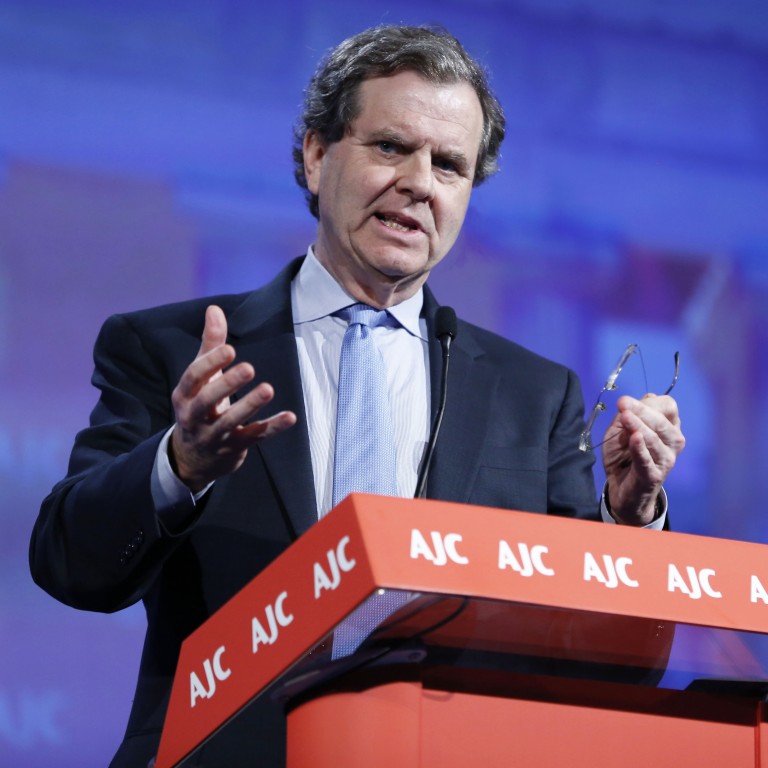Jews & U.S. Public Differ on Antisemitism
There are noteworthy differences over the sources and severity of the scourge, as well as what statements constitute antisemitism.
Dave Schechter is a veteran journalist whose career includes writing and producing reports from Israel and elsewhere in the Middle East.

A new report on antisemitism in America finds significant numbers of American Jews wary of where they go, what they wear and what they post online. Not surprisingly, Jews consider the world’s oldest hatred — as it sometimes is called — more prevalent and more serious than the American population in general. Statements that Jews found antisemitic were regarded less so by the population in general, in which awareness of antisemitism was found tied to education.
The American Jewish Committee issued its first-ever “State of Antisemitism in America” on Monday, to mark the passage of two years since the Oct. 27, 208, massacre of 11 Shabbat morning worshippers at the Tree of Life synagogue in Pittsburgh.
A professional polling firm conducted two surveys for the AJC: one of 1,334 adult Jews, from Sept. 9 to Oct. 4, with a margin of error of 4.2 percentage points, and the other of 1,010 adults in the general population, from Sept. 15-20, with a margin of error of 3.7 percentage points.
Sections of the report compare the 2020 data with responses to the 2019 edition of the AJC’s annual survey of American Jewish attitudes.
One such comparison found that, in 2020, 31 percent of American Jews were concerned enough to “avoid certain places, events, or situations out of concern for your safety or comfort,” compared with 25 percent a year earlier.
This year, 10 percent said they had avoided Jewish institutions or events, 24 percent did not wear, carry or display items that might identify them as a Jew, and 24 percent chose not to post online comments that might identify them as a Jew or their views on Jewish issues.
When broken down by the primary religious movements in American Judaism, 55 percent of Orthodox Jews said they had avoided particular places, events and situations compared with 43 percent of Conservative, 33 percent of Reform, 32 percent of Reconstructionist, and 24 percent of secular Jews.
While 37 percent of the Jews surveyed reported being the target of an antisemitic incident, whether a physical attack or some form of harassment, 76 percent did not report the incident to either law enforcement, a Jewish organization or the news media.
Of those subjected to an antisemitic attack on social media, 62 cited Facebook and 31 percent Twitter as the platform involved.

Among Jews between the ages of 18 and 29, 22 percent said they either personally experienced antisemitism on a college campus in the past five years or knew someone who had.
In this political season, 69 percent of American Jews and 52 percent of U.S. adults “say the Republican Party holds at least some antisemitic views,” compared with 37 percent of Jews and 42 percent of U.S. adults who say the same about the Democratic Party, according to the study. As to the sources of antisemitism, 89 percent of Jewish respondents cited the “extreme political right” as a threat, 61 percent the “extreme political left,” and 85 percent “extremism in the name of Islam” as a threat.
The greater concern with which American Jews regard antisemitism was evident in comparing their responses with those from the general population. Where 88 percent of American Jews believe antisemitism to be a serious problem or somewhat of a problem in the United States, only 63 percent of the general population agreed. Nearly twice as many Jews (82 percent) felt that antisemitism had increased in the past five years, compared with 43 percent in the general population.
Among American Jews, 52 percent felt that the status of Jews in the U.S. was about the same as a year ago, while 43 said it had become less secure (up 1 percent from a 2019 AJC survey), and 4 percent thought it more secure. Notably, there was little divergence in that response from the various movements in American Judaism.
Some Jews may be surprised to learn from the AJC survey that only 53 percent of American adults were familiar with the term antisemitism and knew what it meant, with 21 percent saying they had never heard the word, and 25 percent who had heard the word but did not know what it meant.
“That nearly half of the American population does not even seem to know what antisemitism is can only increase American Jews’ concern about their own security and well-being,” AJC CEO David Harris said in a statement released with the survey.
Less surprising might be the correlation between education and awareness of antisemitism: 79 percent of college graduates compared with 58 percent of those with some college experience, and 27 percent of those with a high school diploma or less education. Conversely, those least familiar with the term antisemitism were clustered among those with less education.
The AJC reported finding “a large discrepancy between Jews and the general U.S. population in viewing what constitutes acts of antisemitism.” Respondents in both surveys were asked to say whether each of three statements was antisemitic:
- 85 percent of Jews and 74 percent of the general public said that “Israel has no right to exist” is antisemitic.
- 84 percent of Jews and 55 percent of the general public said that “the government only supports Israel because of Jewish money” is antisemitic.
- 76 percent of Jews and 50 percent of the general public said that “American Jews are more loyal to Israel than to America” is antisemitic.More than three-quarters (76 percent) of U.S. adults felt that they knew a lot or something about the Holocaust, compared with the 84 percent of American Jews who said that they knew a lot about the Holocaust and 15 percent who said that knew something about it. While 91 percent of Jews felt teaching the Holocaust to middle and high school students was important, that sentiment was shared by just 68 percent of U.S. adults.



comments